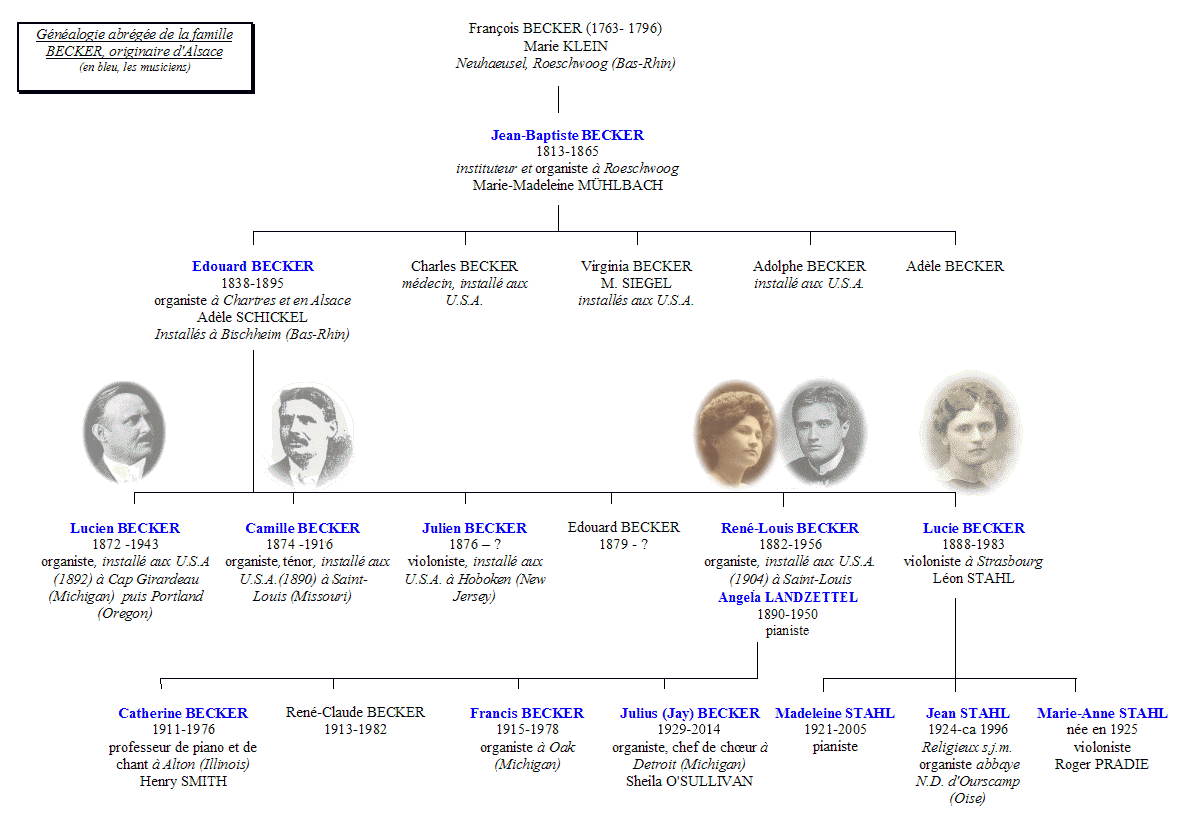La famille Becker
une dynastie de musiciens
 English text
English text
Quand Jay Becker, banquier en retraite résidant à Birmingham (Michigan, U.S.A.), écoute le Requiem Allemand de Brahms la longue tradition familiale de musiciens d'église lui vient à l'esprit. Celle-ci remonte au 19ème siècle en Alsace, où le grand-père de Jay, Jean-Baptiste, vécut jeune. Cette tradition comprend une rencontre entre René Becker, père de Jay, et Brahms lui-même.
Jean-Baptiste Becker vivait à la ferme, mais cultivait également l’amour de la musique et devint un musicien et professeur accomplis. Il transmit ce don à ses enfants qui furent tous formés très jeunes à l’étude du violon, du piano et du chant. Son fils Edouard, particulièrement doué, devint l’organiste de la cathédrale de Chartres et plus tard de celle de Strasbourg. C'était dans les années 1860 et 1870.
Edouard et sa femme Adèle eurent une fille Lucie et quatre fils : Edouard, Lucien, Camille et René qu'ils élevèrent dans la ville de Bischheim en Alsace. René naquit en 1882. Élever les enfants et payer leur éducation musicale au Conservatoire de musique de Strasbourg étaient une très lourde charge pour le père. Au Conservatoire, René bénéficia de l’enseignement de professeurs distingués comme le pianiste Ernest Münch dont le fils Charles allait devenir le célèbre chef d’orchestre, Fritz Blumer, élève de Franz Liszt ou encore, en classe de composition de Carl Somborn, élève de Joseph Rheinberger. Il prit également des cours d’orgue avec le Suisse Adolphe Gessner. Quatre des cinq enfants Becker firent une carrière musicale comme prédagogues, concertistes ou compositeurs.
La rencontre avec Brahms ? Une fois par an, le Maître venait au Conservatoire de Strasbourg donner un récital. Au printemps 1894, le jeune René Becker fut choisi pour lui tourner les pages en récompense de ses succès scolaires, un honneur suprême pour un élève de conservatoire.
Vers les années 1900, l’attrait de l’Amérique se fit sentir chez les Becker et deux des frères de René, Lucien et Camille partirent pour Saint-Louis. Lucie qui avait décroché son diplôme de violon resta à Strasbourg où elle fit carrière comme professeur et concertiste.
René resta encore quelque temps à Strasbourg pour terminer ses études et approfondir ses connaissances dans la musique liturgique. Il rejoignit ses frères à Saint-Louis en 1904 et fonda le "Becker Conservatory of Music" où il enseigna le piano, l’orgue et la composition. Il donna des concerts et commença à faire éditer ses œuvres. Camille mourut alors qu’il n’avait qu’une vingtaine d’années et Lucien, membre de l’"American Guild of Organists", créa de son côté une école de musique à Portland, dans l' Oregon. Ni Camille, ni Lucien n'eurent d'enfants.
Pendant les 40 ans qui suivirent, René publia près d'une centaine d’œuvres, notamment 3 Sonates pour orgue, 15 Messes, 25 pièces pour piano et 35 motets. Certaines de ses œuvres sont encore données de nos jours par des solistes ou ensembles vocaux, en dépit de la récente modernisation de la liturgie d’église. Parmi celles-ci, éditées chez Fischer Brothers, Schirmer, McLaughlin Reilly, et John Church, on trouve sa 1ère Sonate pour orgue, sa Toccata en ré majeur, La Châtelaine, les Melodious Studies, Deux Etudes, et ses Messes en l’honneur de Sainte-Angela, Saint-Felix Valvois et Saint-Francis Xavier, ainsi que des pièces pour violon, alto et violoncelle. En 1908, René quitta ses frères et enseigna l’orgue et la musique a l’Université de Saint-Louis et le chant grégorien au Séminaire Kendride.
La carrière de René Becker prit un nouvel élan quand il épousa en 1910 Angela Landzettel, elle-même musicienne accomplie. Elle était également artiste peintre (aquarelles et peintures à l’huile) et poète. Certaines de ses compositions pour piano et orgue furent publiées par les éditions Theodore Presser. La musique coula en abondance des plumes de René et Angela pendant leurs années de mariage particulièrement fécondes.
L'année suivant la naissance de leur premier enfant Catherine le couple déménagea en 1912 pour Belleville, dans l'Illinois. Là, naquirent ensuite René-Claude en 1913, Francis en 1915, puis la famille s'installa à Alton, (Illinois) où elle vécut pendant les 15 années suivantes. Dans cette ville René continua à enseigner et à composer tout en tenant l’orgue de la cathédrale St-Peter and Paul. Enfin, en 1929, vint le dernier enfant Julius (dit Jay, 1929 - 6 juin 2014).
Les années de la Grande Dépression ne furent pas trop difficiles pour la famille Becker, la musique religieuse étant alors très demandée. En 1930, René fut nommé le premier organiste de la toute nouvelle cathédrale de Blessed Sacrement, à Detroit, qui était alors un centre d'intérêt grandissant pour la musique classique et la musique religieuse dans le sud-est du Michigan. Il resta à ce poste durant 13 ans tout en continuant à donner des leçons chez lui, souvent gratuites pendant la Dépression, et dans les écoles. Il donna aussi des conférences et des concerts et ne cessa pas de composer.
Membre de l’"American Guild of Organists" (Chapitre de Detroit), René aida à la création de la "Catholic Organists Guild" et avec son frère Francis fonda l’Institut Palestrina destiné à l’enseignement du chant grégorien et de la musique liturgique officielle aux organistes de la région. Il joua notamment aux cérémonies d’intronisation du Cardinal Mooney et de l’Evêque Woznicki. En 1943, il devint l’organiste de l’église Saint-Alphonsus à Dearborn, Michigan, jusqu’à sa retraite en 1952 à l’âge de 70 ans. René Becker mourut en 1956 à la suite d’une longue maladie, laissant derrière lui à sa famille, à l’église et aux générations à venir un héritage musical important.
Comme autrefois, la tradition musicale resta de rigueur dans la famille de René et Angela. Dès leur plus jeune âge leurs enfants durent apprendre un instrument : René-Claude abandonna par la suite et devint banquier ; pour Francis, la musique représenta quelque chose de plus sérieux et il fut organiste et directeur musical de l’église Saint-Mary à Royal Oak, dans la banlieue de Detroit, puis dans les années 1950 celui de Saint-Benedict à Highland Park, Michigan, non loin de la demeure familiale. Lui et son frère Jay chantèrent aussi ensemble dans des chœurs ; Catherine ne resta pas longtemps à Detroit et retourna à Alton, Illinois pour épouser son amour d’enfance et pour enseigner le piano et le chant. Julius (Jay) continua le piano et l’orgue et eut de nombreux élèves. En 1957, il épousa Julia, nouvellement arrivée d’Irlande. Actuellement infirmière retraitée et psychologue toujours en exercice. Jay devint vice-président de la plus grande banque de Detroit et organiste et chef de chœur de l’église Saint-Eugène à Detroit pendant de nombreuses années. Il se livra à la composition mais ne chercha jamais à se faire publier.
Tout au long de leur enfance, les enfants Becker furent encouragés dans leurs études musicales par leurs parents qui furent également leurs professeurs. Des exécutions en public étaient couramment organisées par René et Angela, notamment de nombreuses soirées musicales ou des concerts les dimanches après-midi qu'ils donnaient dans leur résidence de l’Avenue Connecticut.
Après le décès de René et Angela, la tradition musicale de la famille a commencé à se perdre. Aucun de leurs petits-enfants n’a en effet apprit la musique sérieusement, bien que certains d'entre eux ont quelque peu étudié et jouent du piano. René-Claude et sa femme, Helen ont deux enfants, Pamela et René-Louis qui vivent maintenant en Nouvelle-Angleterre. Francis et sa femme Margaret n’ont pas d’enfants. Catherine et son mari Henry ont adopté une fille, Susan, maintenant décédée.
Trois des quatre enfants de René et Angela sont depuis partis vers l’éternelle Cathédrale de Musique. Jay et sa femme, Julia (ou Sheila), vivent une retraite relativement calme à Birmingham (Michigan) après avoir élevé deux filles, Margaret et Catherine. Jay participe toujours aux activités de la chorale de l’église Holy Name, située près de chez lui et la musique reste sa raison d’être. Il chante dans le pupitre de basses du "Rackham Symphony Choir" depuis 1977 et en plus de la volumineuse bibliothèque musicale de la famille s’occupe de celle de ce chœur. Celui-ci qui célèbre cette année [2005] ses cinquante ans, est l’une des chorales les plus réputées de Detroit. Elle a été le chœur officiel du "Detroit Symphony Orchestra" pendant de nombreuses années et maintenant se produit avec le chœur du "Michigan Opera Theatre".
Jay Becker est le dernier musicien encore vivant des Becker et le gardien de la tradition musicale de la famille. Sa demeure est remplie de partitions publiées ou manuscrites, dont de nombreuses sont jaunies, riches témoins de la vie et de l’œuvre de ses parents René et Angela Becker. La première chose que l’on voit et entend en entrant chez les Becker est le piano. Il y a seize ans, lors du mariage de sa petite-fille Catherine, les accents de la Missa Salvator Noster de René Becker retentirent dans la cathédrale de Blessed Sacrement pour la première fois depuis longtemps. Cet heureux événement tient une place importante dans la mémoire familiale des Becker, avec celui du jour où le père de Jay partagea la scène avec Johannes Brahms. Le livre de raison de la famille, dans lequel on relève de nombreux faits musicaux, reste intact!
Gene Scott
(2005)
traduit de l'anglais par Nadine Deleury
Note sur l'auteur : Gene Scott, éducateur retraité, ami de longue date de Jay et Sheila Becker, vit à Livonia (Michigan, U.S.A.) avec sa femme Barbara. Ils ont quatre enfants et huit petits-enfants. Il a passé 50 ans de sa vie à chanter dans des chorales de Pennsylvanie et du Michigan. On lui doit plusieurs livres d’histoire sur la ville de Detroit et l'état du Michigan.
Note sur Jay Becker : Depuis la rédaction de cet article en 2005, l'intéressé est décédé le 6 juin 2014 à Royal Oak (Michigan, U.S.A.). Le dernier musicien de cette famille s'en est allé à l'âge de 85 ans.
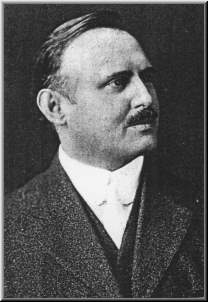 |
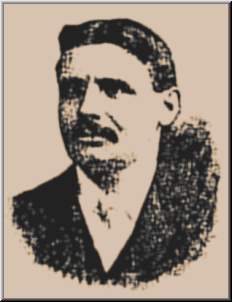 |
Lucien Becker (1872-1943), organiste
|
Camille Becker (1874-ca 1925), chanteur
|
( coll. Jay Becker )
|
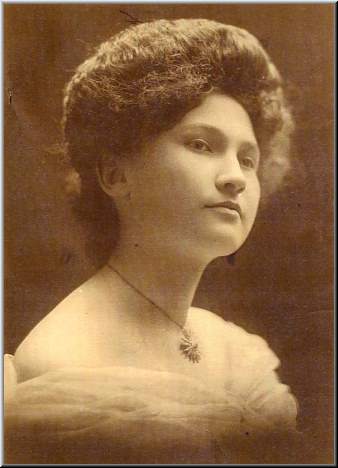 |
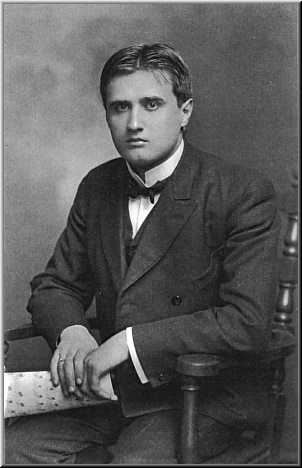 |
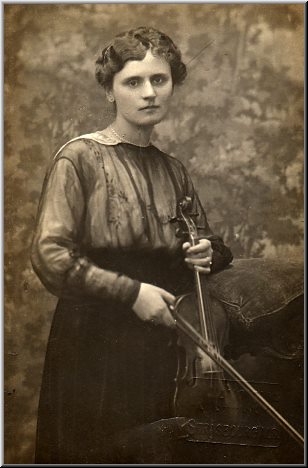 |
| Angela Landzettel (1890-1950), pianiste |
René Becker (1882-1956), organiste
|
Lucie Becker (1888-1983), violoniste
|
( coll. Jay Becker )
|
|
Histoire de la vie d’Edouard Becker
Je suis né le 10 Septembre à Hochfelden (Bas-Rhin).
Mon père mort en 1865 y était instituteur. J’ai fréquenté son école jus-
qu’à l’âge de 14 ans, c’est lui qui m’a donné les premiers principes de
l’orgue et du piano et à l’âge de 12 ans je le remplaçais souvent
comme organiste à l’église. Puis après ma première communion je vins au
Petit-Séminaire de Strasbourg, où je fis la cinquième, la quatrième, la
troisième, la seconde, la rhétorique et la philosophie à la fin de laquelle
je passai l’examen du baccalauréat ès lettres. Durant les trois dernières
années, j’étais aussi organiste à la chapelle du Petit-Séminaire.
De là, je me rendis dans le but de me perfectionner dans la musique et
la théologie et la philosophie à Rome, où je fréquentai comme auditeur
le Séminaire Romain.
Après deux années d’études j’y obtins le grade de Bachelier en théologie.
Dans le domaine de la musique j’obtins le diplôme de Membre de
l’Académie musicale de Ste Cécile et celui de Membre de l’Académie des
Quirites. A Rome j’ai été organiste et maître de chapelle de l’église
Ste Brigitte, place Farnèse. Après cela je trouvai une position en France,
et d’abord dans les villes de St. Pol de Léon (Finistère) et de Chartres (Eure et Loir)
Dans ces deux villes j’ai été maître de musique des Petits-Séminaires et des
Ecoles normales, organiste des cathédrales et directeur de chant des écoles qui
s’y trouvaient. J’y ai passé 10 années de mon existence.
De là je revins dans ma province natale, où après mon mariage, j’exerçai les
fonctions d’organiste à la Cathédrale de Strasbourg et professeur de
musique et de langue française à l’Ecole Normale et au Lycée
de la même ville.
En 1874 je me rendis à Altkirch, après m’être volontairement démis de
mes fonctions d’organiste de la Cathédrale de Strasbourg, que j’ai
exercées pendant 4 ans. Là je fus nommé chef de la fanfare de la
ville, directeur de la société de chant, professeur de piano et organiste
de l’église principale.
Après la mort de ma belle-mère, ma femme prit pension à Bischheim
de la maison de mon beau-père, ainsi que du commerce qu’il y exerçait,
et pour ma part e m’occupe depuis ce temps comme auparavant de leçons
de musique à Strasbourg, à Bischheim, Schiltigheim, Hönheim.
J’ai aussi exercé les fonctions d’organiste et de maître de chapelle à
l’église neuve de Hönheim, où j’ai formé un chœur de chant dont Mr
le Curé Arnold a bien voulu faire l’éloge en son temps.
Enfin j’ai fait paraître dans l’Union un certain nombre d’articles
sur la musique ancienne et moderne et en particulier sur le plain-chant.
Ce curriculum vitae a été écrit par Edouard Becker en 1883
Du 10 octobre 1883 au 1er avril 1895 il a été organiste de l’Eglise
St Jean à Strasbourg. Il est mort le 15 septembre 1895.
[Lucie Becker]
|
 René Becker, 1ère Sonate pour orgue en sol mineur, op. 40 (Schirmer), interprétée par Everhard Zwart au grand orgue de St-Eustache à Paris (extrait). CD JQZ 98007-2 (JQZ Muziekproducties à Kampen, Hollande). Avec l'aimable autorisation de Jay Becker, Everhard Zwart et JQZ Musiekproducties.
René Becker, 1ère Sonate pour orgue en sol mineur, op. 40 (Schirmer), interprétée par Everhard Zwart au grand orgue de St-Eustache à Paris (extrait). CD JQZ 98007-2 (JQZ Muziekproducties à Kampen, Hollande). Avec l'aimable autorisation de Jay Becker, Everhard Zwart et JQZ Musiekproducties.
RENE L. BECKER : A LASTING LEGACY
 Traduction française
Traduction française
When Jay Becker, a retired banker who lives in Birmingham, Michigan, hears Brahm's Ein Deutsches Requiem, his family's treasured tradition of church music stirs in his heart. The tradition goes well back into the 19th century to the French province of Alsase where Jay's great grandfather, Jean Baptiste Becker, grew up. The tradition includes a connection between Jay's father, Rene L. Becker (see photo), and Brahms himself.
Jean Baptiste Becker lived on a farm, but he cultivated a love of music and became an accomplished musician and teacher. He passed this on to his children. All were trained from an early age in piano, violin and voice. His son Edouard really excelled, becoming the organist at the Cathedral of Chartres and later at Strasbourg Cathedral. This was in the 1860's and 1870's.
Edouard and his wife, Adele, raised a daughter, Lucie, and four sons - Edouard, Lucien, Camille, and Rene Louis - in the town of Bischheim, Alsase, France. Rene was born in 1882. It took most of Edouard's income to raise the children and pay for their training at Strasbourg's Conservatory of Music. Some noted musicians of the time were their teachers. Rene's piano teachers, for example, included Ernest Munch whose son Carl became music director and conductor of the Boston Symphony Orchestra. Another was Fritz Blumer, a pupil of Franz Liszt. Rene studied advanced composition under Carl Somborn, a pupil of Joseph Rheinberger. His organ instruction came from Adolphe Gessner, a Swiss organist. Four of Edouard Becker's five children went on to careers in music as performers, teachers, or composers.
The connection with Johannes Brahms? Once a year, Maestro Brahms came to the Strasbourg Conservatory to perform a piano recital. In the spring of 1894, young Rene L. Becker was chosen to turn the pages for the Maestro during the performance because of his high scholastic standing. It was the supreme honor for a conservatory student.
By 1900, the lure of America hit the Becker family and two of Rene's brothers, Lucien and Camille, made their way to St. Louis. Lucie, who had majored in violin, remained in the Strasbourg area as a music teacher and concert performer.
Rene stayed behind mainly to complete his studies and refine his interest in liturgical music. In 1904, Rene joined his brothers in St. Louis and formed the Becker Conservatory of Music where he taught piano, organ and composition. He performed in concerts often and had his own first compositions published then. Camille died in his early twenties and Lucien, a member of FAGO, started a music school in Portland, Oregon. Neither brother had children.
Over the next forty years, nearly a hundred of Rene's works were published, including three major organ Sonatas, 15 Masses, 25 piano solos, and 35 motets. Some of his works are still used by soloists and choral groups, despite recent modernization of church liturgies. These include his First Organ Sonata, Toccata in D Major, La Chatalaine, Melodious Studies, Two Etudes, and his Masses in honor of St. Angela, St. Felix Valvois, and St. Francis Xavier. Rene's published works also include compositions for violin and viola. Fischer Brothers, Schirmer, McLaughlin Reilly, and John Church have published his works. By 1908, Rene left his brothers and taught organ and music at St. Louis University and Gregorian Chant at Kendride Seminary.
New impetus to Rene Becker's professional career came in 1910 when he married Angela Landzettel. She was an accomplished musician in her own right. She was also devoted to the fine arts and did numerous oil and water color paintings and wrote poetry. Angela composed and had published by Theodore Presser several piano and organ compositions. The music from the pens and pianos of Rene and Angela in those productive early years of their marriage seemed relentless.
The couple moved to Belleville, Illinois in 1912, the year after their first child, Catherine, was born. Then came Rene Claude in 1913 and Francis in 1915, by which time they moved to Alton, Illinois where they lived for the next 15 years. While there, Rene continued to teach and compose and was the organist at St. Peter and Paul Cathedral. Last but not least in the family came Julius (or Jay, 1929 - June 6, 2014) who was born in 1929.
The Great Depression years were not all that difficult for the Beckers, especially in the wine and roses days of church music. In 1930, Rene became the first organist at the newly-built Blessed Sacrament Cathedral in Detroit, which was a center of a burgeoning interest in church and classical music in southeast Michigan. He held this post for the next thirteen years. He continued to teach music at home and in area schools, often giving lessons free during the depression years. Rene also gave lectures and concerts, and, he continued composing.
A member of the American Guild of Organists (Detroit Chapter), Rene helped to establish the Catholic Organists Guild. With his son Francis, he founded the Palestrina Institute to teach area organists Gregorian Chant and liturgically correct music. He played at the installations of Detroit Cardinal Mooney and Bishop Woznicki. After 1943, he moved on to St. Alphonsus Church in Dearborn and was organist there until he retired in 1952 at the age of 70. Rene L. Becker died in 1956 after a long illness, leaving behind a lengthy legacy of music for his family, the church and the ages.
As before, the Becker family legacy was family policy. From their early years, all of Rene and Angela's children had to learn a musical instrument. Rene Claude gave it up and went into banking. For Francis, music was a more serious affair. He was the organist at St. Mary's Church in suburban Royal Oak. In the 1950's, he was also organist and choir director at St. Benedict Church in Highland Park, Michigan, near the family home. He and Jay sang together in the choir.
Daughter Catherine did not linger long in Detroit, moving back to Alton, Illinois to marry her high school sweetheart and to teach piano and voice. Jay continued with piano and organ and has had many music students. In 1957, Julius married Julia, newly arrived from Ireland and now a retired nurse and practicing psychologist. He went on to become a vice president at Detroit's largest bank and was the organist and choir director at St. Eugene's Church in Detroit for many years. He has had a few compositions, but made no serious attempt to get them published.
When the Becker children were growing up, the study of music was fostered by Rene and Angela who taught all of them. Performance skills were polished at every opportunity, particularly through the many evening or Sunday afternoon "musical soirees" which Rene and Angela hosted for area musicians in their home on Connecticut Avenue.
After Rene and Angela died, the Becker family music tradition became more difficult to carry on. None of the their grandchildren got into music seriously, although several studied and play piano. Rene Claude and his wife, Helen, had two children, Pamela and Rene L., who now live in New England. Francis and his wife, Margaret, had no children. Catherine and her husband, Henry, adopted a daughter, Susan, now deceased.
The children of Rene and Angela Becker have since moved on to the eternal Cathedral of Music, all except for Jay. He and his wife, Julia (or Sheila), now live a somewhat quieter life in Birmingham after raising two daughters, Margaret and Catherine. Jay is quite active in the nearby Holy Name Church choir and still makes music his mainstay. He has been in the bass section of Rackham Symphony Choir since 1977. In addition to the voluminous family music library at home, Jay also maintains the Rackham Choral library. The Choir, which this year [2005] is observing its fiftieth anniversary, has been one of the Detroit area's premier choral organizations. It had been the official choir of the Detroit Symphony Orchestra for many years and now often performs with the Michigan Opera Theatre Chorus.
Jay Becker is the last surviving musician in his family and preserver of the family's music tradition. Everywhere in the Becker home there is music by the score, including many old yellowed ones, published and unpublished - rich reminders of the life works of Rene L. and Angela Becker. The first thing one sees and hears upon entering the Becker home is the piano. Sixteen years ago at his granddaughter Catherine's wedding, the strains of Rene L. Becker's Missa Salvator Noster reverberated through Blessed Sacrament Cathedral for the first time in many years. That joyful moment is high on the list of Becker family memories, along with the day Jay's father shared the stage with Johannes Brahms. The family's treasured album of enduring music accomplishments remains intact.
Gene Scott
(2005)
ABOUT THE AUTHOR : Gene Scott, a retired public relations writer and educator, lives in Livonia, Michigan with his wife of forty years, Barbara. They have four children and eight grandchildren. Gene has been active in choral groups and church choirs in Pennsylvania and Michigan for fifty years, including the Eintracht Singing Society of Pittsburgh, Rackham Symphony Choir, Vanguard Voices, and more recently with Madonna University Chorale. He has authored history books on Michigan Centennial Towns, Detroit's early villages and old neighborhoods, and is currently researching revived ghost towns in Michigan.
ABOUT JAY BECKER : this Becker's family history was written in 2005. Jay Becker deceased on June 6, 2014 in Royal Oak (Michigan, U.S.A.). The last musician in this family passed away at 85.
Life of Edouard Becker
I was born on September 10th 1838 in Hochfelden (Bas-Rhin). My father, who died in 1865, was a schoolteacher there. I went to his school until the age of 14, and it was he who gave me my first rudiments of organ and piano. I often substituted for him at the organ of the church. After my first Communion I came to le Petit Séminaire in Strasbourg where I spent my fifth, fourth, third, second years and took classes of rhetoric and philosophy and passed my Baccalauréat és Lettres. During the last three years, I was also the organist at the Chapel of le Petit Séminaire.
From there, I went to Rome to perfect my knowledge of music, theology and philosophy as an auditor at the Séminaire Romain.
After two years of school, I graduated as a Bachelier in Theology. As for music, I received the diploma of "Membre de l’Académie musicale de Sainte-Cécile" and the one of "member de l’Académie des Quirites". In Rome I was the organist and chapel master of Sainte Brigitte church on Farnese Plaza. After that, I got a position in France in Saint-Pol de Léon (Finistère) and later Chartes (Eure et Loir). In these two towns, I was music teacher at le Petit Séminaire et École Normale, organist of the cathedral and choral director of the schools. There I spent 10 years of my life. I then came back to my native region where, after my wedding, I became the organist of the Strasbourg Cathedral and taught music and French at the École Normale and in the Lycée of the same city.
In 1874, I moved to Altkirch, after voluntarily resigning from my position as organist of the Strasbourg Cathedral, which I had kept for 4 years. There, I was appointed director of the municipal Band, music director of the vocal society, piano teacher and organist of the main church.
After my mother-in-law’s death, my wife acquired her father’s house and his business in Bischheim, and as for me, as before, I am busy with music lessons in Strasbourg and Bischheim, Schiltigheim, Hönheim.
I have also served as the organist and chapel master of the new church in Hönheim where I have formed a choir which Father Arnold praised.
Finally, I have published in the Union a certain number of articles on modern and ancient music and particularly on plain chant.
This Curriculum Vitae was written by Edouard Becker in 1883. From October 10, 1883 to April 1, 1895, he was the organist of Saint-Jean church in Strasbourg. He died on September 15, 1895.
[Lucie Becker]
Obituary for Julia Sheila Becker
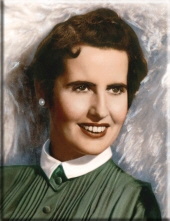
|
Julia Sheila O'Sullivan (1927-2020)
|
On the second of March, we lost one of the most impactful people you ever met. Once a maid, working her way to the title of “Doctor,” Sheila Becker was a strong, driven, empowering woman. Most of all, she was a character.
Dr. Julia “Sheila” Becker, Nee O’Sullivan passed away on March 2, 2020, age 92 years and 8 months.
Born in Claraghatlea, Millstreet, County Cork, Ireland on June 28, 1927, Sheila was raised in a large Irish family with 16 siblings. Having no running water or electricity, Sheila often said she grew up on fresh air.
Sheila became a nanny and midwife in London, helping deliver hundreds of babies. Her ticket to America in 1955 came at the age of 28, due to the nursing shortage. Sheila was a Registered Nurse and her trip to America was the opportunity of a life time.
As for many immigrants, her arrival to America brought the opportunity for a better life. Sheila continued her education, receiving her Masters in Social Work and culminating in her PhD in Clinical Psychology from the Center for Humanistic Studies, at the age of 67. Over the years, Sheila counselled many individuals and families, helping them work through life’s conflicts and emotional distress. Her strength of character and strong religious beliefs made her a role model for many.
Sheila married her husband Julius (Jay) Adrian Becker in 1957 and had 2 daughters, Margaret (Meg) and Catherine (Kit). They lived in northwest Detroit. In 1969 the Becker’s purchased a small farm on 8 Mile Rd near South Lyon. They and their friends became weekend farmers. Many good times were had working the land and creating memories to last a lifetime.
The family moved into their current home in Birmingham in 1980. Sheila loved to volunteer as a tutor at Derby Middle School and was adopted as “Grandmother” by students over the years. She also founded the Aspiring Authors group at the Birmingham Senior Center (BirminghamNEXT.org). Sheila published her memoir “My Dream from Ireland to America – Please Call Me Sheila” and inspired others to do the same.
Sheila made friends with everyone that was within reach - literally. She was known to reach out her hand and say “Hi, I’m Sheila Becker”, and within a few minutes had a knack for learning the life story of total strangers. She would frequently bring home those she met at the park and invite them in for tea or dinner. Her home on Thanksgiving became a wonderful event for anyone that did not have a place to go. One never knew who would show up; having extra food to feed the guests was a must.
Sheila lived her life to the fullest and enjoyed being a dual citizen of both Ireland and the United States, and specifically, a resident of the City of Birmingham for 40 years.
Sheila is survived by her children, Margaret Becker and Catherine (Thomas) Washabaugh. She is also survived by her grandchildren, Julie Ann and Jennifer Renee Washabaugh, her brother, Patsy O’Sullivan, niece Margaret O’Sullivan, sister Theresa Kelleher and numerous other loving Irish nieces and nephews around the globe, sister-in-law Helen Becker, niece Pamela Wilde (William), great-nephews, Mark and Alex Wilde, nephew Rene Becker (Cynthia), and great-niece, Lucie Becker. Sheila is also survived by many incredible special friends of all ages. You all know who you are. Her neighbors in Birmingham have been beyond kind and generous, always keeping a watchful eye on her and bringing over goodies. She was predeceased by her loving husband, Julius (Jay) Becker on 6/6/2014.
Sheila was always so wonderfully loyal to her native Irish hometown of Millstreet. As we say in Gaelic “Ar dheis Dé go raibh a anam dílis” (His noble soul on the right hand of God).
Visitation will be held at Lynch & Sons Funeral Home, 1368 N. Crooks Road (between 14-15 Mile Rds.) Thursday, March 5th, 4-8pm. A Funeral Mass will be celebrated at Holy Name Church, 630 Harmon, Birmingham, Friday at 10am. Friends may visit at church beginning at 9:30am.
In lieu of flowers, Sheila requested that consideration be made to donate to NEXT (www.BirminghamNext.org), the Rackham Symphony Choir or the SCARAB Club.
What a dear, special person we have lost.
As Sheila would say, Goodnight, God Bless, Love you, Bye.
|
Dimanche 28 janvier 2007, DETROIT (Michigan, U.S.A.)
MARYGROVE COLLEGE DEPARTMENT OF MUSIC
(chapelle du Sacré-Coeur, orgue Casavant, 1929)
en collaboration avec le CHAMBER MUSIC AT THE SCARAB CLUB
René L. BECKER : From ALSACE to DETROIT
Marche triomphale : Ite missa est
Méditation, op. 51. n° 5
Edward Maki-Schramm (orgue)
Imogène, valse d'Angela Landzettel Becker (dédié à son mari René L. Becker)
Romance
Joseph Palazzolo (piano)
 Aria Aria
Blümenlied et Walzer (extraits des 6 Pièces mélodiques pour violoncelle)
Nadine Deleury (violoncelle)
Jacqueline Csurgai-Schmitt (piano)
 Moonbeams Moonbeams
Valse d'amour
Velda Kelly (violon)
Eduard Perrone (piano)
2e Sonate pour orgue en fa majeur, op. 41 : Prélude, Pastorale, Finale
Charles Echols (orgue)
Grand choeur, d'Angela Landzettel Becker
Supplication, op. 81a
Joanne Rickards Clark (orgue)
Ave verum
In te speravi
Gail Mitchell (soprano)
Joanne Rickards Clark (orgue)
Elégie
Joanne Rickards Clark (orgue)
Sonate pour violon et piano, op. 103 (allegro con spirito)
Velda Kelly (violon)
Eduard Perrone (piano)
 Toccata en ré mineur, op. 85 Toccata en ré mineur, op. 85
Joseph Palazzolo (orgue)
(Nous remercions plus particulièrement la famille Becker, le Chamber Music at the Scarab Club, Mesdames Deleury, Csurgai-Schmitt, Kelly, Messieurs Perrone, Palazzolo et LaQuière (Award Studio) de nous avoir si aimablement autorisé à présenter ici les enregistrements © de certaines oeuvres)
|
